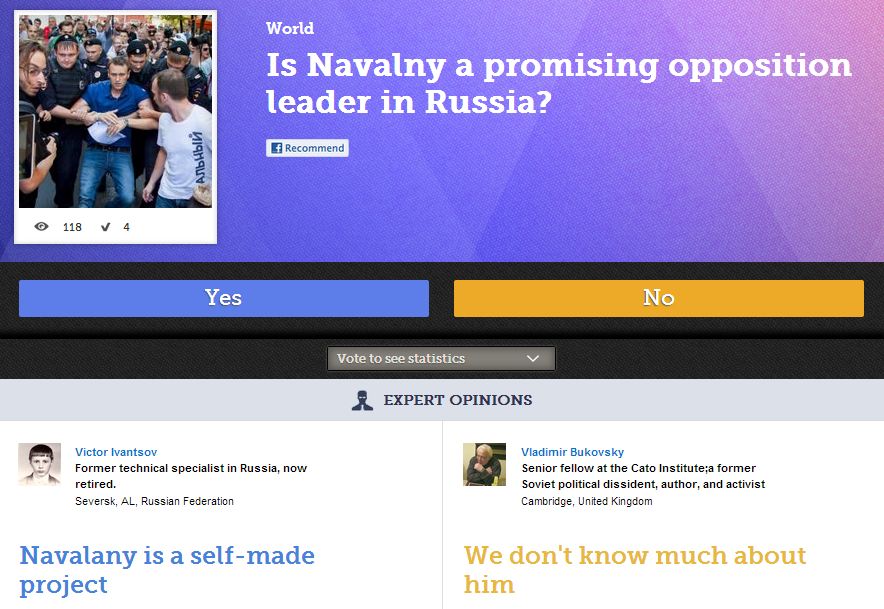Articles from businessmen from Silicon Valley. Alexey Fedoseev: “A brave and new, but not very clear world (part 1)”

Hi, this is Ivan Tsybaev from the American Business Association of Russian-speaking Professionals (AmBAR) . With this article we start our series of publications from eminent businessmen from Silicon Valley, in which they will talk about their start-ups, the markets in which they work, and other things that fall within their area of expertise. Earlier we already acquainted the inhabitants of Habr with interesting people and places of Silicon Valley - video interviews and reports from Silicon Valley .
So, our first author is Alexey Fedoseev , a former director of product development at Motorola, a serial entrepreneur who sold his previous startup for several tens of millions of dollars (the exact amount is not disclosed). In Alexey’s article, he sheds light on how modern technology, social networks, and his startup can answer the simplest and, at the same time, the most difficult of the questions “So what do people [on the Internet] really think?”, Solving the problem of imposing opinions of the most active commentators, bloggers, journalists and other people who give their views for public opinion.
About the author: Alexey Fedoseev is a serial entrepreneur who has been living in Silicon Valley since 1996. Prior to the creation of his current startup, 1World Online was the director of product development at Motorola, which bought its previous startup 4Home (platform for Smart Home), where Alexey was vice president of products and programs. Motorola, in turn, bought Google, so he spent two years managing the hardware and software product line in the Convergence Division, working mainly with providers in many countries around the world. Prior to the success of 4Home, in 1999–2006, Alexey worked as an engineering manager and then product director of 2Wire, a pioneer and market leader in Residential Gateways, which became North America’s No. 1 and successfully sold to Pace for $ 475 million. For several years, Alexey was Ambassador of the Broadband Forum, an international organization that produces standards for the telecom industry, where he was one of the co-authors of a number of TR (Technical Reports) and White Papers. Aleksey graduated from the postgraduate studies course at the Moscow State University in Moscow, in 1991, after which he created his first startup (still in Russia) on system integration.

')
Today, the Internet and social networks, in particular, are saturated with various forms of information, including news, commentaries, opinions and judgments. However, behind the mountains of digital content that have scored all the horizons, there are still several gaping holes. One of them, in my opinion, is an understanding of the reaction of people to events. Yes, we can read any political, sports and technological news from hundreds and thousands of sources, and even (if there is a desire) to scroll through comments to them, but neither one nor the other will answer the question, and what people really think about what happened ?
If the most active and irrepressible commentators scribble posts after posts, does this mean that they represent the majority? Not at all ... The number of comments is not the same as the number of supported and unsupported topic. Moreover, the majority in California is not the same as the majority in America, and, especially, in Europe, Russia, or Japan. But how interesting and useful it would be to find out how people from different states and countries, different ages, education, gender, social status and political views reacted to the problem. Then our understanding of a specific problem, and, to some extent, of the world as a whole, would have played with completely different colors!
Now imagine that the problem discussed in the article we see two expert opinions, for and against, with a civilized justification of the position, with links to the facts, clearly separated from the opinions, and the readers of the article vote for the one that convinced them. It is then that a new qualitative dimension is added to the information and an “almost” objective picture of the audience’s reaction to the problem raised.
It is clear that on many sites there are already various voting polls, but there are also clear big limitations with how they function and what they show. It’s not hard to predict which way the Fox News visitor surveys will be shifted, and which side will be shifted to MSNBC visitors. And to the polls, for example, as if of an independent CNN, confidence is not too high, in the strength of its closeness. For these reasons, the problem of objectivity is not solved, and in order to get closer to it, you need to take information from different sources and be able to normalize and analyze it.
This is exactly what our startup 1World Online is doing, trying to answer with the help of modern technologies, social networks and its know-how to such a simple, and at the same time, the most difficult question “So what do people really think?”

It is not so obvious that everyone is interested in finding out the answers to some questions, but what if he doesn't like it? How many of us are willing to remain in the minority (and especially in the overwhelming minority) on those issues in which we are convinced and adamant? And is everyone ready to see statistically neatly in what kind of society they live? Remember the scene from “The Matrix”: “red or blue pill?” (Red pill or Blue pill?), And let's see how deep the rabbit hole goes ...
To be continued
Thank you for your attention and for the positive feedback. Subscribe to our blog on Habré , Twitter (an aggregator of interesting news about Silicon Valley), Facebook , YouTube-channel to follow the updates. Previous posts can be found here .
Source: https://habr.com/ru/post/194660/
All Articles